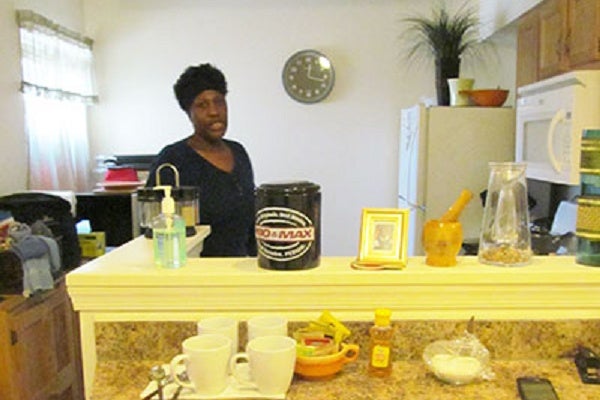Germantown neighbors discuss Habitat for Humanity home-ownership joys, travails
Homeownership for residents like Kimberly Mathis, who lives on the 5300 block of Priscilla St. in Germantown, is a rewarding experience.
Mathis — a Habitat for Humanity Philadelphia board member and licensed massage therapist who has lived in the neighborhood since she was six years old — received her 16-year-old home through Habitat’s homeownership program when the previous owner was no longer able to keep it in 2009.
“There are currently 15 families that have received safe-and-secure housing in a span of 12 years covering a two-block radius through Habitat for Humanity Philadelphia,” Mathis said.
While Mathis has had few quality of life disturbances directly affecting her, her friend and fellow Habitat homeowner can’t say the same.
Quality of life worries
Elizabeth Nwizugbo, a drug and alcohol counselor living nearby, has dealt with issues directly affecting her family and her property such as loitering and drug activity.
Nwizugbo said the 350 sweat-equity hours required in order to qualify for a Habitat home were well worth it. (Sweat-equity hours are the volunteer hours that applicants for the Habitat program must complete building Habitat houses and going to Homeowner Education Workshops.)
When Nwizugbo first moved in with her nephew in 2006, he had a hard time acclimating due to friction with other kids close in age who lived nearby. He would get into fights frequently before settling in with a new group of friends.
Originally, Nwizugbo did not have a gate surrounding her property, but after seeing people loitering on and around her corner property, she hired someone to put up a gate around her property.
She experienced littering on her property, disturbances between people hanging on the corner and neighborhood drug activity.
“Drugs are everywhere,” Nwizugbo said.
She said she still receives fines for trash on her property that does not belong to her.
Things get better
Since first moving into their homes on Priscilla Street, however, both women say they have witnessed the neighborhood positively transform. Loitering and drug activity has decreased, especially when the Queen Lane Apartments shut down.
She acknowledged that although she may have initially had issues with people from the area disrespecting her property, problems similar to these have the potential to arise in any part of the city, not just her street or neighborhood.
Mathis and Nwizugbo both expressed ample gratitude for a home through Habitat for Humanity and Mathis speaks passionately of their past and future efforts to provide homes for families.
“Habitat’s focus is on housing and homeownership for people who need it,” Mathis said.
Today, Mathis resides in a beautiful and spacious four-bedroom, two-bathroom home that is wheelchair accessible for her youngest daughter who has spastic cerebral palsy.
She has transformed one of her bedrooms into a massage room for her clients, so that she can work independently, out of her home, on Mondays and Tuesdays.
After four years of owning her home on Priscilla Street, she can’t mask her smile when she of spoke homeownership as being one of the best feelings.
Parissa M. Zecher is a student at Temple University. Philadelphia Neighborhoods, a NewsWorks content partner, is an initiative of the Temple Multimedia Urban Reporting Lab.
WHYY is your source for fact-based, in-depth journalism and information. As a nonprofit organization, we rely on financial support from readers like you. Please give today.




















